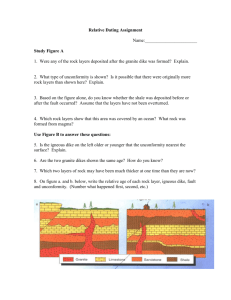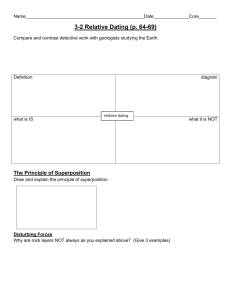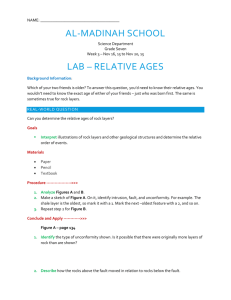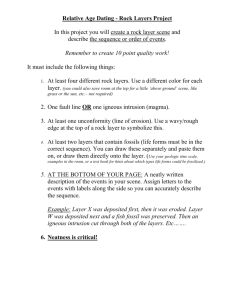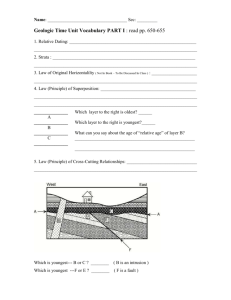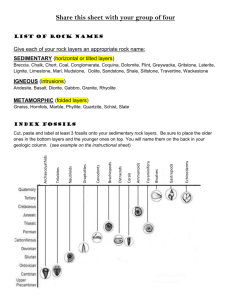Chapter 8 Section 1 #'s 1-6
advertisement
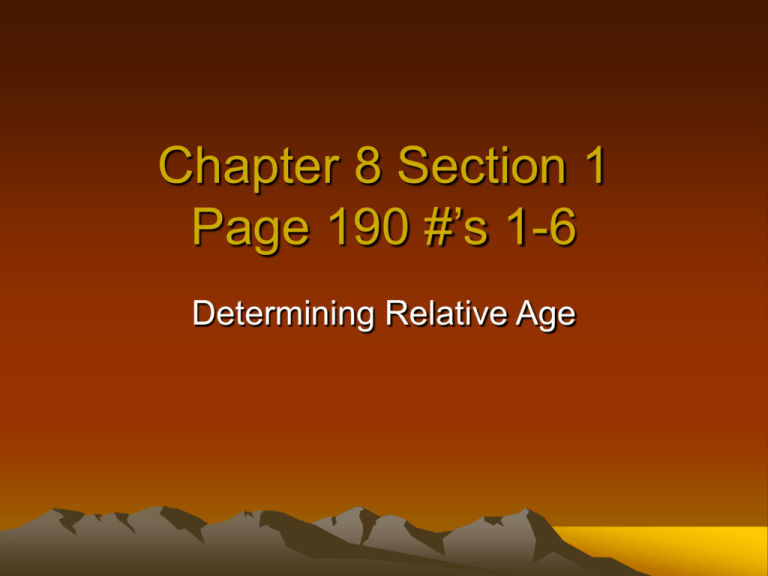
Chapter 8 Section 1 Page 190 #’s 1-6 Determining Relative Age 1. Explain why it is important for scientists to be able to determine the relative age of rocks. • So they can understand the age and history of Earth 2. State the principle of uniformitarianism in your own words. • It’s like what happened in the past is just like what is happening now man. 3. Explain how the law of superposition can be used to determine the relative age of sedimentary rock. • According to the law, a rock layer is always younger than the rock layer below it if the layers are undisturbed. 4. Explain the difference between an unconformity and a nonconformity. . • An unconformity is a break in the rock record; a nonconformity is a kind of unconformity in which metamorphic or igneous rock layers are overlain by sedimentary rock layers. 5. Compare an angular unconformity with a disconformity. • In an angular unconformity, tilted rock layers are overlain by horizontal rock layer. In a disconformity, the rock layers above and below the unconformity are parallel. 6. Describe how the law of crosscutting relationships helps scientists determine the relative age of rocks. • The law of crosscutting relationships helps scientists understand that a body of rock or fault is always younger than any other body of rock that it cuts through. The End !!!

